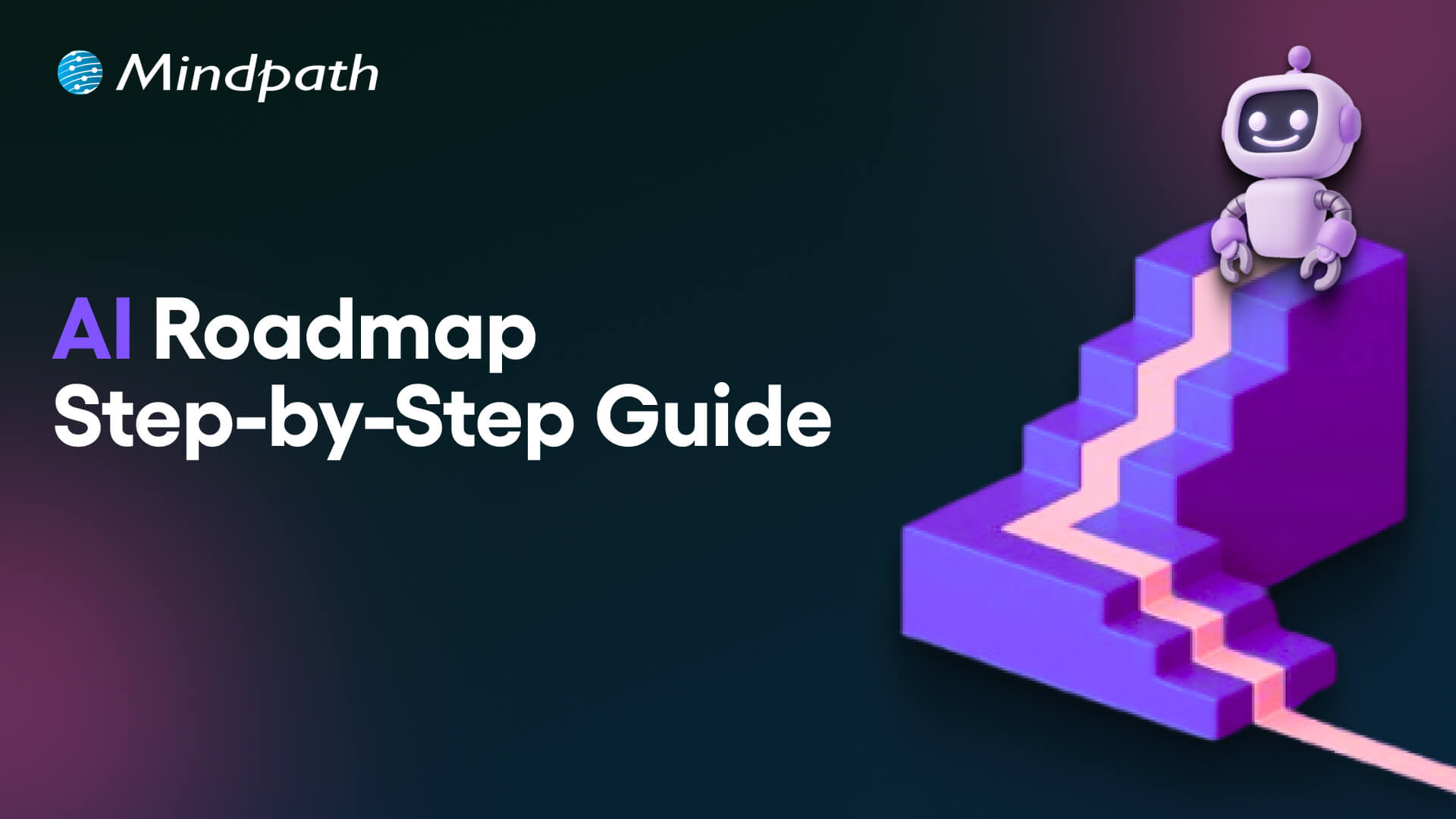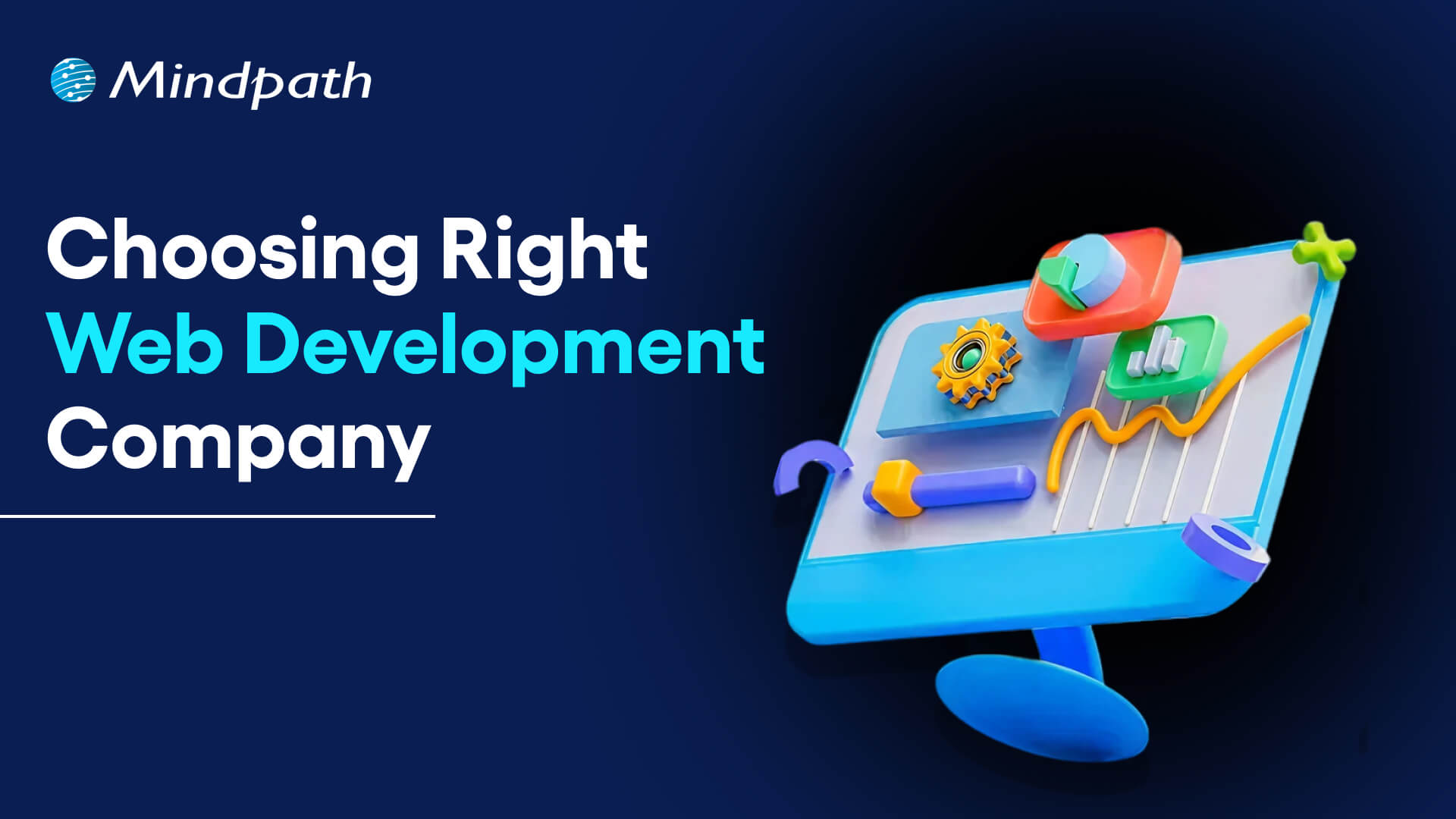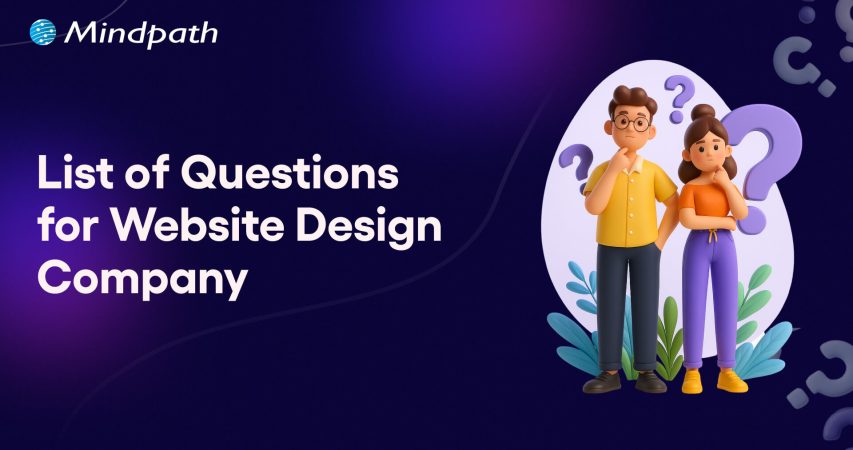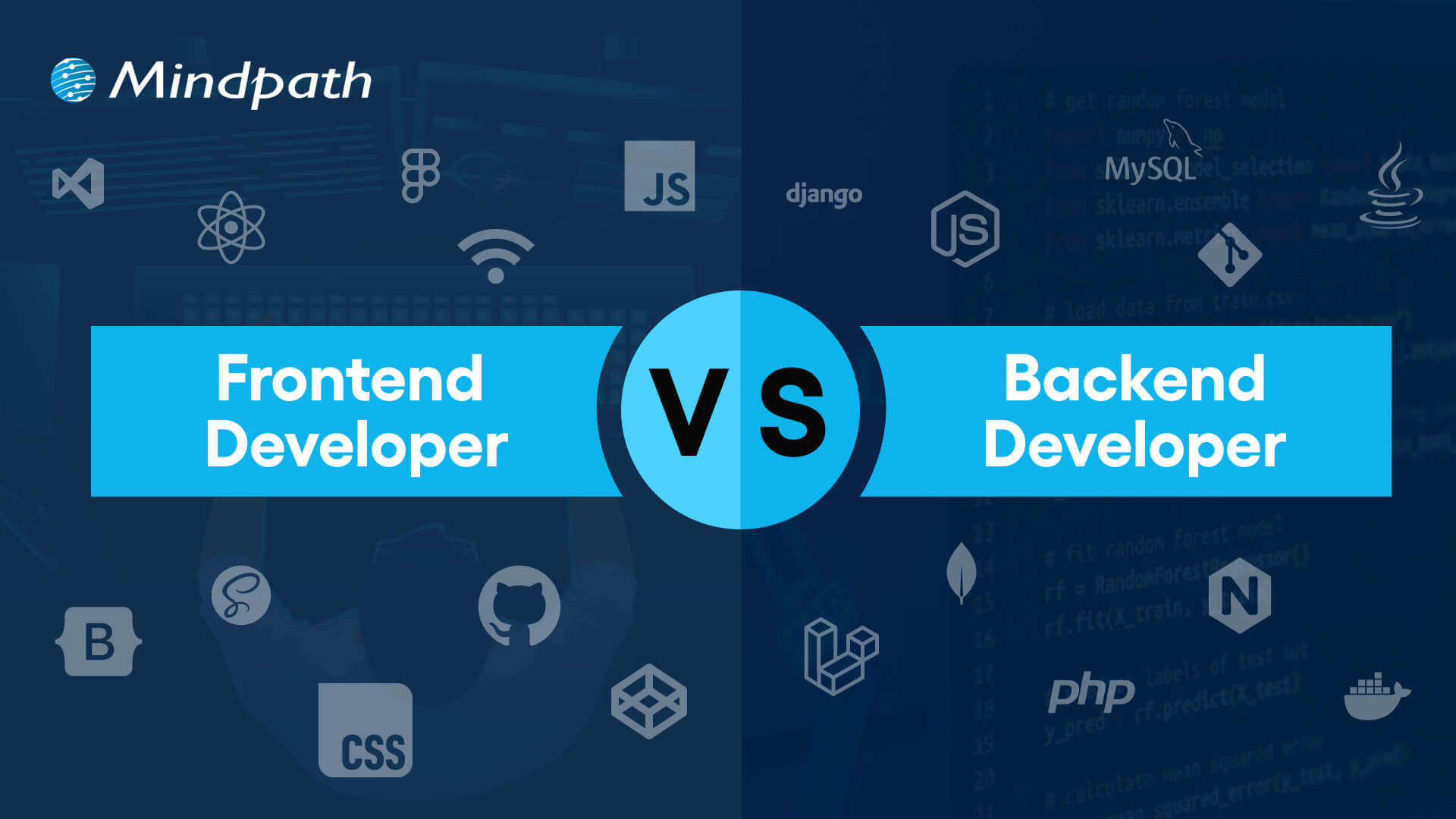Your website is the foundation of your online growth strategy, brand identity, and user experience. Whether you want to launch a new website, upgrade, or rebrand your digital presence, hiring the best website design company is a vital decision. A small mistake in this, and you would end up with a site that is unappealing, slow, and poorly optimized.
However, with hundreds of web development agencies promising fast turnarounds and impressive designs, how do you pick the right web design company? Well, it lies in asking the right questions when hiring.
This detailed guide breaks down the top 10 questions that you need to ask a website development company before making your final decision. Let’s get started with this.
Want to build a high-performing website that defines uniqueness and provides you competitive advantage? Mindpath’s web development services will bring your ideas to life.
Why Choosing the Right Web Designer Partner Matters?
Selecting a professional website designer is an important decision that directly influences your business’s digital success. The right agency will be your strategic partner, helping you create a platform that can effectively drive conversions, growth, and engagement. Looking for more reasons to partner with a reliable website development company? Check the points below.
1. SEO Optimization
Professional agencies deploy the best SEO practices into design and development, making your site attract more organic traffic and rank higher.
2. User Experience
A certified website design company crafts intuitive navigation, responsive layouts, and fast-loading web pages to keep visitors engaged.
3. Flexibility and Scalability
The right digital partner will offer solutions by keeping the future growth in mind. For this, they will ensure smooth integration, timely performance enhancement, and easy updates.
4. Accessible Web Design
These experts create inclusive design and follow the POUR or Perceivable, Operable, Understandable, and Robust guidelines. That means your site will remain accessible to all audiences, including users with disabilities.
5. Performance and Security
Professional web designers use secure coding practices. Besides, they optimize the code for speed, lowering bounce rates. It would not be wrong to say that investing in the top website design company can help you set a robust foundation for your current and future digital success.
Want to see how AI can change the game for building and maintaining websites? Check out our post on AI in web development to learn how AI can make your site smarter, faster, and more efficient.
10 Questions to Ask a Website Design Company
Hiring a web design company is a process of choosing a strategic partner who can understand your business, long-term goals, and audience. Here are 10 questions you should ask before hiring these experts to avoid any costly mistakes in the future.
1. Do You Have Experience with My Business Type or Industry?
Remember that not all web design agencies are the same. While some specialize in service-based businesses, others are in e-commerce. By understanding an agency’s industry experience, you can decide whether they can create a site for your audience.
Why It Matters:
- You don’t have to spend hours explaining your business model.
- Familiarity with necessary compliance is important.
- Industry-specific expertise can result in a better understanding of UI/UX design trends and decisions.
2. Do You Use Templates or Create Custom Designs?
This question helps you analyze the agency’s design capabilities. Templates are cost-effective, but custom designs are great for uniqueness, scalability, and flexibility. Other benefits you will enjoy are:
- Accurate reflection of your brand identity
- smooth integrations and long-term growth
- Robust security features
3. What Are Your Strategies to Make a Site Mobile Responsive?
Your website should look and function perfectly across desktops, tablets, smartphones, and web browsers. Ensure that their strategies include the following points:
- Creation of clear menus
- Testing across various screen sizes and devices
- Checking compatibility with Edge, Chrome, Safari, etc.
- Use of plugins for image optimization
4. What CMS Do You Always Recommend and Why?
The CMS, or Content Management System, decides how smoothly you can manage content, update the site, and scale. Some widely used platforms are Drupal, WordPress, Shopify, Webflow, and Joomla. With a robust CMS, you will enjoy benefits like:
- Solid security
- Plugin compatibility
- Ease of use
- Better SEO
- Hassle-free integration with third-party systems
5. What is Your SEO Implementation Strategy in the Design Process?
Even though you have a great site, it will be useful if it is not ranking. An expert should implement the right SEO techniques during the design process. This may include site architecture, on-page optimization, and technical SEO. Things that you need to consider are:
- Core Web Vitals and mobile optimization
- Faster loading and clearer code
- Keyword-friendly metadata and URLs
- Schema markup
Ask them whether they provide a detailed SEO audit after the launch.
Must Read: WordPress vs Drupal
6. What type of Quality Assurance and Testing Method Do You Use?
Before the final launch, it is crucial to carry out rigorous testing of your site to detect bugs, layout issues, bottlenecks, and broken links. Only a trustworthy website design company will follow a structured QA process. Look at their checklist and ensure that it covers:
- Performance and load testing
- Functional testing of elements like navigation, forms, buttons, etc.
- Security audits
- Accessibility check following WCAG guidelines
To know more, you can ask for a sample report of their previous projects.
7. Why Should I Select You Over Other Agencies?
This is a crucial question that can help you understand what sets a website design company apart. A transparent and confident agency will never fail to explain the reasons clearly. A reliable agency will highlight factors like:
- Their past results and expertise
- Commitment to customer satisfaction and quality
- Their approach aligns with your unique business goals
- Process transparency
If they are not clear and confident while answering this question, you should look for another web design and development service provider agency.
8. What Ongoing and Website Maintenance Solutions Do You Offer?
Your website is a living asset. To keep running smoothly, they need backups, bug fixes, performance monitoring, and regular updates. So, while hiring an expert, clarify what type of support they offer and what will be billed separately. Some common support options to consider are:
- Plugin management
- CMS update
- Uptime monitoring and security patches
- Monthly maintenance packages
- Performance reports
Ask the agency about Service Level Agreements and evaluate their response times for support queries.
9. How Will You Communicate About the Project Progress?
We all know that clear communication is key to successful collaboration. So, while hiring web developers and designers, ask about the tools they use to communicate, their project management style, and the frequency of updates. Some important things to clarify are:
- Communication channels they use, i.e., Slack, Asana, Trello, email, etc.
- Point of contact (developer, designer, or project manager)
- Feedback and optimization protocols
- Milestone reviews or weekly updates
Apart from this, you should also understand how they handle unexpected delays and scope changes.
10. What Is Your Pricing Method, and What Is Covered?
Transparency in pricing can help prevent surprises in the future. So, clearly understand what is included in the service quote and what may lead to extra charges. In general, pricing models can include:
- Hourly billing
- Fixed project charge
- Monthly packages
- Cost of logo design, content creation, custom fonts, and custom graphics
- Hosting fees and domain registration
Always ask for a comprehensive quote and proposal with clear timelines, payment terms, and deliverables.
Looking for a website that truly reflects your brand and scales with your growth? Check out our blog on the benefits of custom website development services to discover why custom development pays off in the long run.
Common Red Flags to Consider
As mentioned above, selecting the web design and development agency is a strategic decision. While asking questions, it is also crucial to understand the warning signs that may lead to issues. So, watch out for these five red flags while hiring an agency.
1. Evasive or Vague Response
If a firm struggles to explain their web design process, gives generic answers, and doesn’t share their past work, stay away from the firm. It clearly shows a lack of transparency and experience.
2. Overpromising
Be careful with the agencies that guarantee higher rankings, unrealistic timelines, and instant conversions without any analytics and case studies to support their claims.
3. No Clear Timeline
A reliable website design company should clearly outline deliverables, milestones, as well as review cycles. A lack of a structured plan can lead to scope creep and delays.
4. Not Focusing on Mobile Optimization and Accessibility
Well, these are non-negotiables when it comes to making your digital asset successful. If these are not present on your site, it may fall short on compliance reach and performance.
5. Selection of Wrong CMC Platform
A bad agency may use a low-quality CMS, as it will be easier for them to create a beautiful website. But it would lack the features your business needs.
Always opt for a web development company that is transparent, listens to your needs, and is committed to your long-term success.
Want to build a complete website without coordinating with multiple developers? Explore our post on full-stack development for web projects to discover how a full-stack approach simplifies your workflow and accelerates delivery.
Make the Right Choice for a Successful Digital Future
Partnering with the right website design company sets the foundation your business needs to achieve the desired online success. By asking these questions and understanding red flags, you can make an informed decision. Remember that only the right agency can align with your business goals and develop a website that will not only look great, but also scale, perform, and convert.
Choosing Mindpath as your website design and development partner can help you stay ahead in this competitive market. We always go beyond surface-level web design. Our experienced team combines the latest SEO strategies, an accessibility-first approach, as well as platform-specific optimization to offer websites that are high-performing and inclusive. Let Mindpath assist you with your next web development project and witness remarkable results.












